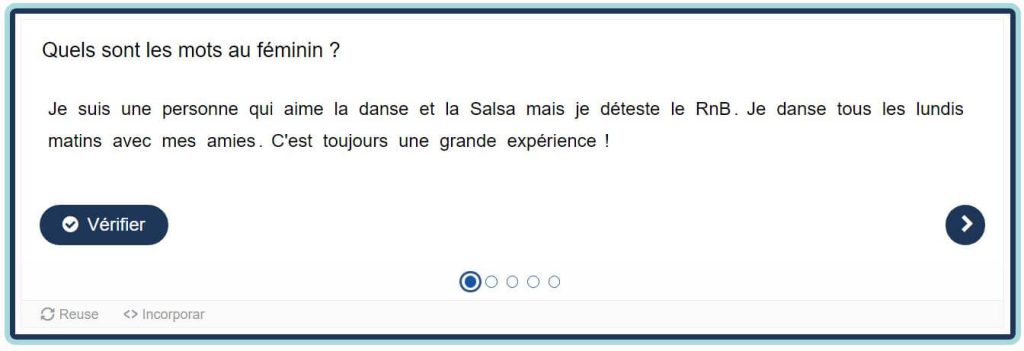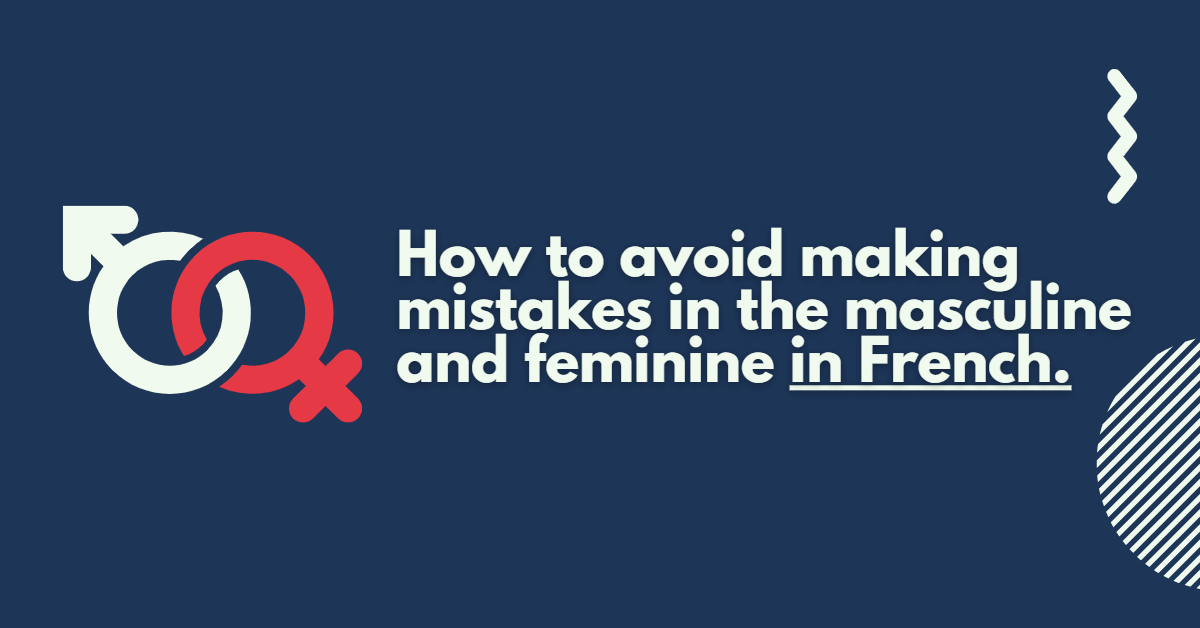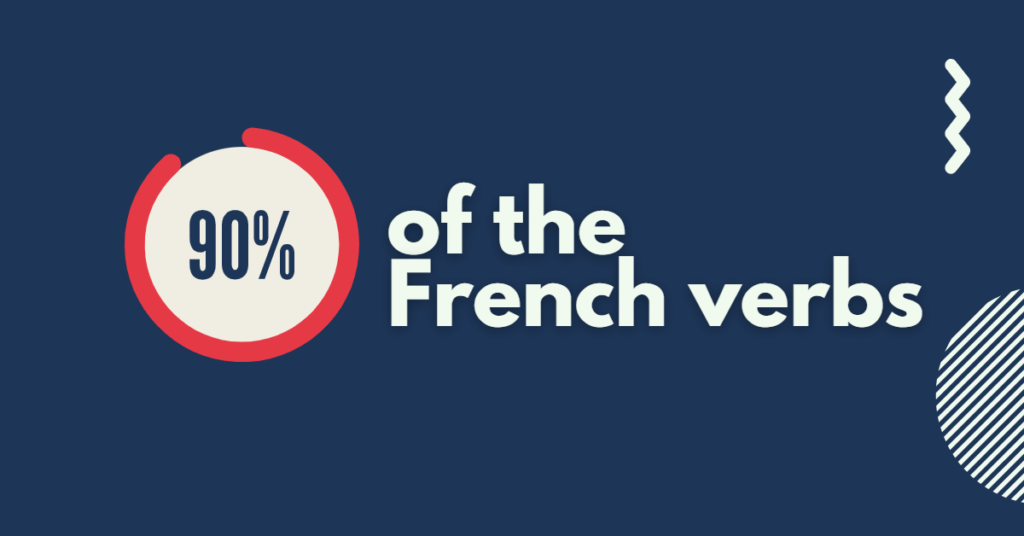It’s one of the big challenge for native English speakers, the genders in French! I heard so many times, “why is this one feminine and this other masculine but this rule says this?”.
Gender marks in French can have some particular forms that we will see here. Don’t worry, by the end of this article everything will be clearer for you!
Before you continue, remember that making mistakes about gender, without knowing whether that noun is feminine or masculine, is no big deal! Everyone will still understand you, and that is the most important thing. It takes 600 words to have a conversation, and you don’t need to know every special case. That is why here we will look only at the most important ones.
Knowing if a noun is feminine or masculine in French
The first thing you need to know is whether the noun you hear or read is feminine or masculine so that you can use the correct article (le, la les, un, une…).
However, there are some tips to help you find your way.
As a general rule, if the word ends in E, it is likely to be a feminine name.
For names of countries, for example: la France, l’Italie, l’Espagne, l’Argentine… are all feminine words, ending with an E!
Categories of nouns that are generally feminine:
- Store names: la boulangerie la boucherie la pharmacie.
- Car brands : une Peugeot, une Audi, une Jaguar
Categories of nouns that are generally masculine:
- The Seasons: un hiver doux, un été chaud
- The months of the year: janvier, février…
- Weekdays: le lundi je commence le travail
For you now, can you guess the gender of these names in French?
Register for free to do the exercises and access +1000 exercises and videos in French.

The main rules of male and female agreement in French
In general, the adjective agrees with the noun as follows :
- If female > an “e” is usually added.
Example:
- Un allemand > une allemande
- Un étudiant > une étudiante
- Un français > une française
There are then some broad categories of exceptions.
Do you want to know how to conjugate 90% of French verbs? Download our PDF!
The ending “-eau” (m) / “-elle” (f)
- beau (beautiful, handsome) > belle
- nouveau (new) > nouvelle
The ending “-el” (m) / “-elle” (f)
- un intellectuel (an intellectual) > une intellectuelle
- naturel (natural) > naturelle
The ending “-er” (m) / “-ère” (f)
- un étranger (a foreigner) > une étrangère
- premier (first) > première
The ending “-t” (m) / “-tte” (f)
- un chat (a cat) > une chatte
The ending “-ien” (m) / “-ienne” (f)
- un Canadien > une Canadienne
- Un chien (a dog) > une chienne
The ending “-teur” (m) > “-teuse” / “-trice” (f)
- un menteur (a liar) > une menteuse
- un acteur (an actor) > une actrice
The ending “-eux” (m) > “-euse” (f)
- heureux (happy) > heureuse
- généreux (generous) > généreuse
Finally, many also remain the same in French:
- Un riche > Une riche
- Un secrétaire > Une secrétaire (secratary)
Note: If the noun or adjective in the singular ends in s, x or z, its plural form will be the same.
– Un pays incroyable / des pays incroyables
– Un bon choix / des bons choix
Now it’s your turn!
Register for free to do the exercises and access +1000 exercises and videos in French.

Does it seem impossible to memorize everything? Tell yourself that it’s not that important at first. Don’t spend too much time on these cases, they will gradually become familiar to you, but know that they exist.




